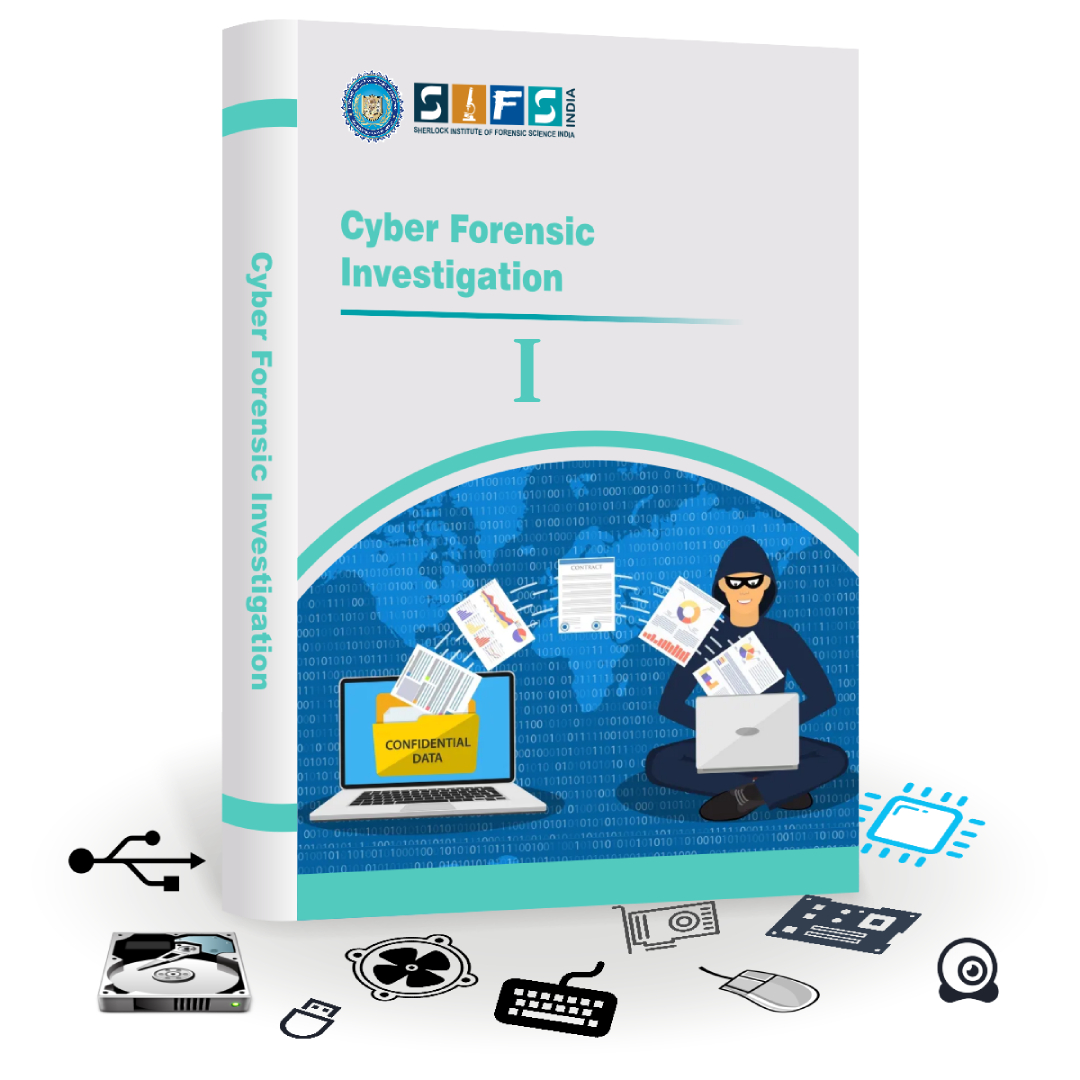TED/C22
Cyber Forensic Investigation Level I
3 Months, Rs.12.98K, FTK, Autopsy
Cell and PDA Forensics, Computer Forensics including portables, Desktops, and servers. Incident Response, iOS Forensics, Network Forensics, Password Recovery, Photo Forensics, Storage forensics including Hard Disk Drive Data recovery, Acquiring Image and Cloning, Flash Drive Data Recovery, EnCase Forensic toolkit, Foremost, COFEE, HashKeeper, and other essential and most successful techniques are used in the teaching sessions.
Forensic Toolkit (FTK), Data Acquisition, and Acquiring. Steganographic and Other image File Forensics, Wireless Attack Investigation by analyzing Logs, Web Attacks Investigation, Email Tracing, and Investigating Email Crimes, Mobile Crimes and Forensics, Reporting, how to become an Expert Witness. All the aspects are covered in our specially designed course for participants looking for their career in Digital Crime Investigation and Cyber Forensics.
Background (when was it started first, how many people have been certified, which places, etc) We are running this course from 2012. 250+ Students enrolled till now. We have maximum students from South India and African Countries
TED/C22
Number of Lecture (L) hours and Practical (P) hours
375 hours
Differentiators
Computer forensics is simply the use of computer investigation and analysis techniques to determine potential legal evidence. Evidence may be sought in a wide range of computer crimes, including but not limited to trade secret theft, intellectual property theft or destruction, and fraud. The professional can use a variety of methods to discover data in a computer system or recover deleted, encrypted, or damaged file information, which is known as computer data recovery. Students are taught by highly qualified professionals about various cybercrimes and its investigation procedure.Conducted by Industry Level Certified Professionals.
Course Curriculum Outline
- Module 1 – Computer forensics
- Module 2 – First responder procedures
- Module 3 – Searching and seizing computers
- Module 4 – Digital evidence
- Module 5 – Computer forensics investigation process
- Module 6 – Mobile forensics
Course Curriculum Outline
Evaluation
Customised online Examination Portal developed by SIFS India Continuous assessment is done via quizzes, assignments and solving of real case studies. Students should score a minimum of 40% in each assessment to pass and be certified
Reference Materials
Books and Study Portal
Course Learning Outcomes
Students will learn:
- Fundamentals of Computer Forensics
- Protocol for a First Responder at Crime Scene
- Various Digital Evidences found at Crime Scene
- Ways to Search, Seize and Preserve the digital evidence
- Investigative procedure for the computer evidence
- Chain of Custody
- Basics of Mobile Device and crimes associated with it
Pre- requisites
- Students should have completed PUC and have minimum knowledge of computers
- Laptop with good configuration
Teaching pedagogies
- Online Learning.
- In-house Training.
- Internship.
Tools Used
Industry Specific all relevant tools (FTK, Autopsy and more)
Lab Avaliability
10 AM -5 PM
Credits
15
Placement Potential
As per our data more than 80% People placed and working in the same. We can only assist in Placement
Industry Associates
SIFS India
Accademic Associates
We have Collaboration with Delhi University and Lucknow University
Course Coordinator
Dr Ranjeet Kr Singh CEH, CHFI, MSc., Ph.D
Pricing
INR 12,980 (excluding taxes)
Number of Lecture (L) hours and Practical (P) hours
375 hours
Differentiators
Computer forensics is simply the use of computer investigation and analysis techniques to determine potential legal evidence. Evidence may be sought in a wide range of computer crimes, including but not limited to trade secret theft, intellectual property theft or destruction, and fraud. The professional can use a variety of methods to discover data in a computer system or recover deleted, encrypted, or damaged file information, which is known as computer data recovery. Students are taught by highly qualified professionals about various cybercrimes and its investigation procedure.Conducted by Industry Level Certified Professionals.
Course Curriculum Outline
- Module 1 – Computer forensics
- Module 2 – First responder procedures
- Module 3 – Searching and seizing computers
- Module 4 – Digital evidence
- Module 5 – Computer forensics investigation process
- Module 6 – Mobile forensics
Course Curriculum Outline
Evaluation
Customised online Examination Portal developed by SIFS India Continuous assessment is done via quizzes, assignments and solving of real case studies. Students should score a minimum of 40% in each assessment to pass and be certified
Reference Materials
Books and Study Portal
Course Learning Outcomes
Students will learn:
- Fundamentals of Computer Forensics
- Protocol for a First Responder at Crime Scene
- Various Digital Evidences found at Crime Scene
- Ways to Search, Seize and Preserve the digital evidence
- Investigative procedure for the computer evidence
- Chain of Custody
- Basics of Mobile Device and crimes associated with it
Pre- requisites
- Students should have completed PUC and have minimum knowledge of computers
- Laptop with good configuration
Teaching pedagogies
- Online Learning.
- In-house Training.
- Internship.
Tools Used
Industry Specific all relevant tools (FTK, Autopsy and more)
Lab Avaliability
10 AM -5 PM
Credits
15
Placement Potential
As per our data more than 80% People placed and working in the same. We can only assist in Placement
Industry Associates
SIFS India
Accademic Associates
We have Collaboration with Delhi University and Lucknow University
Course Coordinator
Dr Ranjeet Kr Singh CEH, CHFI, MSc., Ph.D
Pricing
INR 12,980 (excluding taxes)


